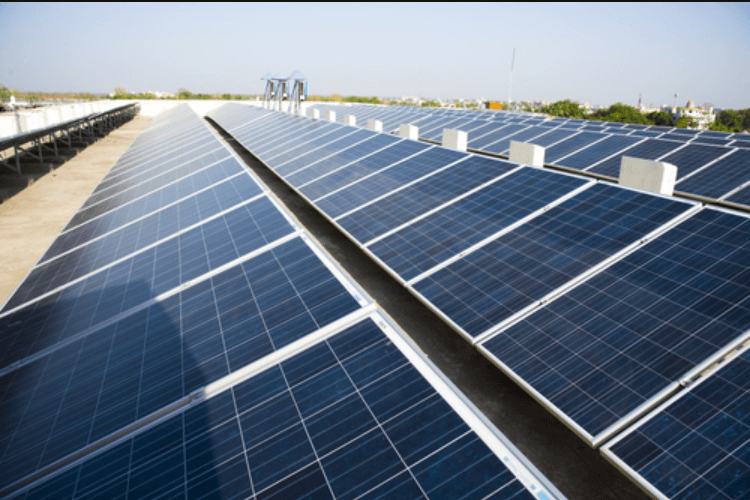The shift towards sustainable and eco-friendly practices has gained immense momentum in recent years. One notable trend in this realm is the increasing adoption of commercial solar panel installation. Businesses are recognizing the environmental benefits and the significant cost savings associated with harnessing solar energy.
Rising Popularity of Commercial Solar Panel Installation
Current Trends in Solar Adoption
Sparked a surge in the popularity of solar panels. Solar installations are becoming ubiquitous, from residential rooftops to vast commercial complexes. This surge is driven by a collective commitment to reducing carbon footprints and embracing cleaner energy alternatives.
The Growing Demand for Commercial Installations
Businesses, both large and small, are increasingly investing in solar panel installations. This shift is not merely driven by environmental consciousness but is fueled by the substantial economic advantages associated with harnessing solar power. As commercial electricity costs continue to rise, companies are turning to solar solutions to gain a competitive edge and secure long-term savings.
Benefits of Commercial Solar Panels
Cost Savings and ROI
One of the most compelling reasons businesses invest in solar panels is the potential for significant cost savings. While the initial setup cost might seem substantial, the return on investment (ROI) is impressive. As electricity bills decrease, companies have more resources to allocate to core business activities.
Environmental Impact and Corporate Responsibility
Beyond financial gains, commercial solar panels contribute to a company’s environmental stewardship. Reduced reliance on traditional energy sources means a decrease in greenhouse gas emissions, aligning businesses with global efforts to combat climate change. Adopting solar power also enhances a company’s corporate image, showcasing a commitment to sustainable practices.
Types of Commercial Solar Panel Systems
On-Grid Systems
On-grid systems are connected to the local utility grid. Excess energy generated can be fed back into the grid, allowing businesses to earn credits or even generate revenue.
Off-Grid Systems
Off-grid systems operate independently of the utility grid, making them suitable for remote locations or areas with unreliable power sources.
Hybrid Systems
Combining the best of both worlds, hybrid systems utilize both on-grid and off-grid functionalities, offering flexibility and reliability.
Choosing the Right System for Your Business
Assessing Energy Needs
Before embarking on a solar installation journey, businesses must thoroughly assess their energy needs. Understanding peak energy consumption and patterns allows for the selection of a system that meets specific requirements.
Budget Considerations
Clear, businesses must also consider budget constraints. Making solar power accessible to various budget levels.
Commercial Solar Installation Process
Site Assessment
A critical step in the installation process is a comprehensive site assessment. Factors such as sun exposure, shading, and available space are evaluated to optimize panel placement and efficiency.
System Design
Based on the assessment, a customized solar panel system is designed to meet the unique energy needs of the business. This phase involves selecting the appropriate technology and determining the optimal configuration.
Installation Phases
The actual installation involves mounting the panels, connecting the system to the electrical grid, and implementing safety measures. While the process may disrupt daily operations briefly, the long-term benefits far outweigh the temporary inconveniences.
Ensuring Regulatory Compliance
Permits and Approvals
Navigating the regulatory landscape is a crucial aspect of commercial solar installations. Securing the necessary permits and approvals ensures compliance with local building codes and environmental regulations.
Environmental Considerations
Businesses must also consider the ecological impact of solar installations. Choosing sustainable materials and minimizing disruption to local ecosystems are essential for maintaining a harmonious balance between progress and environmental conservation.
Maintenance and Longevity of Commercial Solar Panels
Routine Inspections
Regular inspections are vital to ensuring the optimal performance of solar panels.
Maximizing the Lifespan of Solar Panels
Proper maintenance practices, including cleaning and monitoring, contribute to extending the lifespan of commercial solar panels. Investing in quality equipment and professional maintenance services pays off in the long run.
Case Studies
Success Stories of Businesses Benefiting from Solar Panels
Highlighting real-world examples of businesses reaping the rewards of solar power fosters confidence and encourages others to follow suit. Case studies showcase diverse industries and sizes, illustrating the versatility and scalability of commercial solar solutions.
Challenges Faced and Overcome
Acknowledging the challenges faced during the installation and integration process adds transparency. Sharing how these challenges were successfully overcome provides valuable insights for businesses considering solar adoption.
Future of Commercial Solar Power
Technological Advancements
The continuous evolution of solar technology opens up exciting possibilities for the future. From more efficient panels to advanced storage solutions, the landscape of commercial solar power is poised for innovation.
Potential for Growth and Innovation
As awareness grows and technology advances, the potential for widespread adoption of commercial solar power is significant. Businesses that embrace solar solutions today position themselves as pioneers in a rapidly evolving energy landscape.
Economic Incentives and Government Support
Tax Credits and Incentives
Governments worldwide are incentivizing businesses to go solar through tax credits and financial incentives. Understanding and leveraging these programs can significantly reduce the initial investment and hasten the realization of financial benefits.
Government Initiatives Promoting Solar Adoption
Beyond financial incentives, governments are actively promoting solar adoption as part of broader sustainability initiatives. Keeping abreast of such programs can provide businesses with additional support and resources.
Common Misconceptions about Commercial Solar Panels
Debunking Myths
Addressing common misconceptions surrounding commercial solar panels is crucial. From concerns about reliability to misconceptions about installation complexities, dispelling these myths fosters informed decision-making.
Addressing Concerns
Acknowledging and addressing genuine concerns potential adopters may have ensures transparency. Providing clear information and guidance helps businesses make informed decisions that align with their goals.
Comparing Solar Power to Traditional Energy Sources
Cost-Effectiveness
A detailed comparison of the long-term cost-effectiveness of solar power versus traditional energy sources emphasizes the economic advantages of embracing renewable energy.
Environmental Impact
Highlighting the environmental benefits of solar power, such as reduced carbon emissions and lower ecological impact, underscores its role in mitigating climate change.
Educating Employees and Stakeholders
Internal Communication Strategies
Effectively communicating the benefits and rationale behind solar adoption to employees and stakeholders is crucial for garnering support and enthusiasm.
Building Support within the Organization
Fostering a culture of sustainability requires the collective effort of all stakeholders. Incentivizing and involving employees in the solar initiative enhances organizational buy-in. Read more…
Conclusion
In conclusion, the journey towards commercial solar panel installation is more than an eco-friendly choice; it’s a strategic decision with far-reaching benefits. From substantial cost savings to environmental responsibility, businesses stand to gain immensely from embracing solar power. As technology advances and government support increases, commercial solar power’s future looks promising.
FAQs
- How much does a commercial solar panel installation cost?
- The cost varies based on factors such as energy needs, location, and system type. On average, businesses can expect a return on investment within a few years.
- Are there government incentives for commercial solar installations?
- Yes, many governments offer tax credits and financial incentives to businesses adopting solar power. It’s advisable to research and take advantage of these programs.
- What maintenance is required for commercial solar panels?
- Regular inspections, cleaning, and monitoring are essential for maintaining optimal performance. Professional maintenance services can further enhance longevity.
- Can commercial solar panels operate during power outages?
- It depends on the system type. On-grid systems may shut down during outages for safety reasons, while off-grid and hybrid systems can continue supplying power.
- How do commercial solar panels contribute to environmental sustainability?
- Commercial solar panels help decrease greenhouse gas emissions by reducing reliance on traditional energy sources, mitigating the environmental impact of energy consumption.










